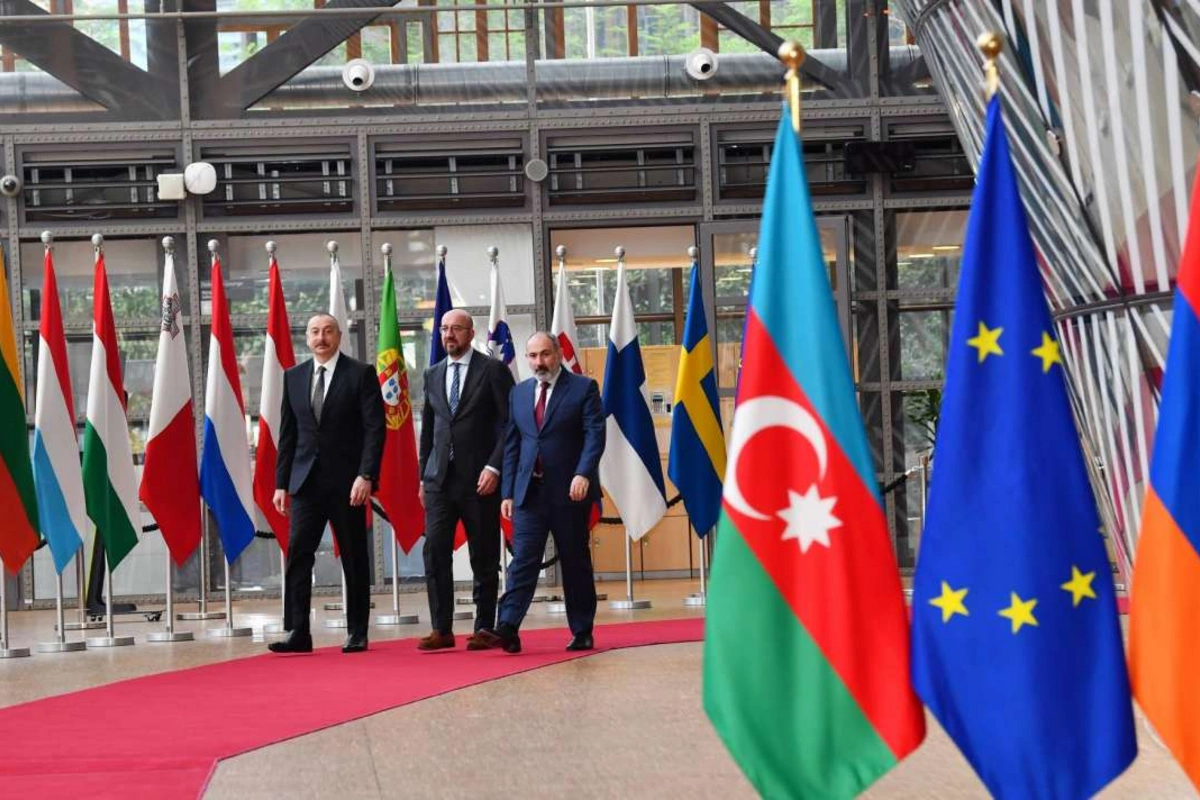
The Brussels meeting between the Armenian Prime Minister and the Azerbaijani President was cancelled due to time constraints, according to Toivo Klaar's announcement yesterday.
Image: president.az
Despite hopes that Armenian Prime Minister Nikol Pashinyan and Azerbaijani President Ilham Aliyev would meet in Brussels towards the end of the month, the European Union’s Special Representative for the South Caucasus, Toivo Klaar, yesterday said that it will now not take place. Giving the reason as “time constraints,” he made the announcement while participating remotely in a conference held in Yerevan.
Following the slightly unorthodox disclosure, Foreign Minister Ararat Mirzoyan was more specific at a joint press conference with his Canadian counterpart, Mélanie Joly. “I hope that the problem really is the specific dates and in the near future it will be possible to agree on new dates,” he said, naming Aliyev.
However, it comes after the Azerbaijani president had already pulled out of another EU-facilitated meeting in Granada earlier this month. “Baku does not see the need to discuss the problems of the region with countries far from the region,” an official source told media at the time. “Baku believes that these issues can be discussed and resolved in a regional framework.”
This was the same message that Aliyev conveyed during his visit to Georgia four days later, where it was announced that Tbilisi could also host bilateral and trilateral meetings between the sides. Many suspected this as a sign of increasing frustration with negotiations facilitated by European Council President Charles Michel.
Baku is already irked by a statement adopted in Granada despite Aliyev’s absence. It charges that some provisions in the declaration signed by Pashinyan, Charles Michel, French President Emmanuel Macron, and German Chancellor Olaf Scholz were its own internal matter and should not have been discussed.
Moreover, following the 19 September operation when Azerbaijan took back control of Karabakh, some believe Baku now feels less of a sense of urgency in signing an agreement. This is even more the case, given the option of connecting with Nakhchivan through Iran rather than Armenia.
A long-delayed meeting of the 3+3 format of regional countries to discuss issues without “external interference” also took place in Tehran two days before Klaar’s announcement. Though the Armenian and Azerbaijani foreign ministers were present, their only bilateral interaction was said to be of an ‘informal nature,’ hardly what might be expected just before Brussels.
It is unclear whether or how the format of Armenia, Azerbaijan, Iran, Russia, and Türkiye will develop given Georgia’s refusal to participate, but some believe this could represent an attempt to shift to more regional meetings in the future. The same could also be true with Aliyev’s invitation to meet in Georgia.
Indeed, on 26 October, Pashinyan and Azerbaijani Prime Minister Ali Asadov both made addresses at the opening ceremony of the fourth Tbilisi Silk Road Forum immediately following a welcome speech by their Georgian counterpart, Irakli Garibashvili.
“We are ready to cooperate with […] Azerbaijan and Armenia […] to establish a final stable peace in the South Caucasus,” he told attendees. Georgian Minister of Economy Levan Davitashvili went further. “Tbilisi is a neutral, impartial platform, a place where countries can meet and speak about peace, cooperation and development,” he told media.
Despite the cancellation or postponement, Klaar maintains that a meeting between Aliyev and Pashinyan will still take place, but no date has yet been given. “It is our expectation that the leaders will meet in Brussels as agreed at the earliest possible opportunity,” his office announced. Azerbaijani analyst Farhad Mammadov, however, remains skeptical.
“If the approach of the European Union will be within the framework of the Granada document, I do not think that Azerbaijan will go to […] Brussels […] in the future,” he told the BBC’s Azerbaijan Service. Nonetheless, a draft resolution for a European Council summit starting today in Brussels reportedly calls on Armenia and Azerbaijan to complete the normalisation process by the end of the year.
Share on social media